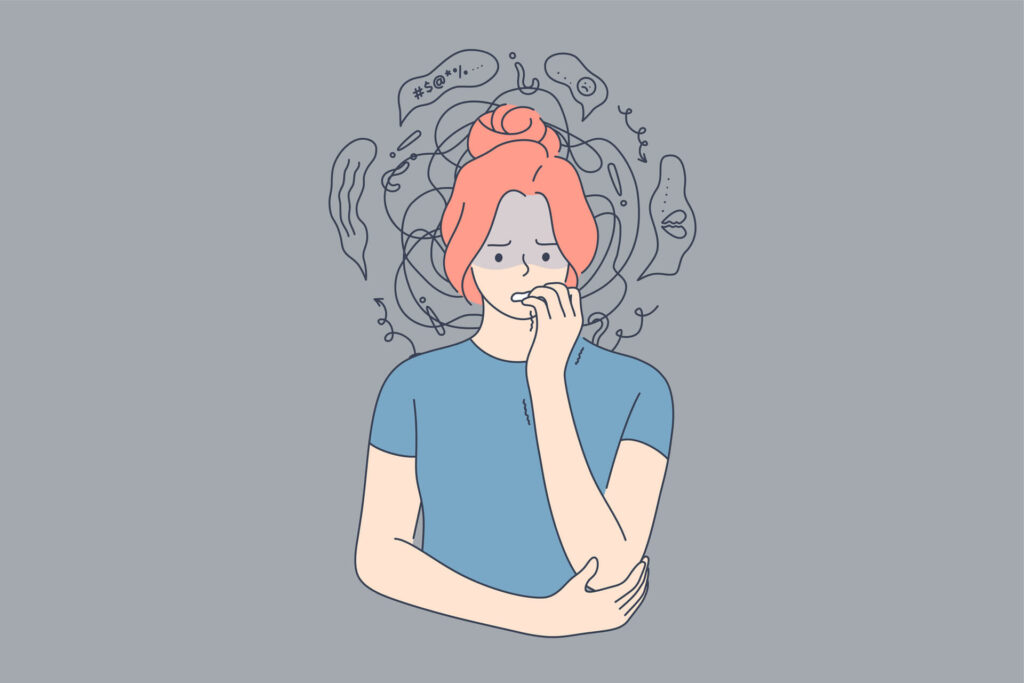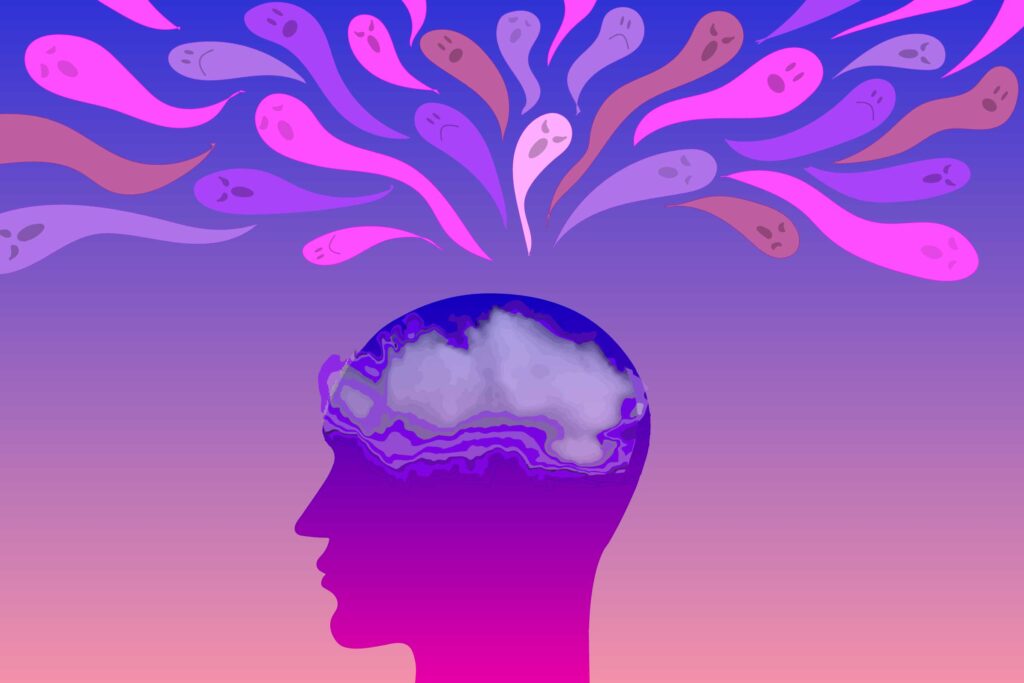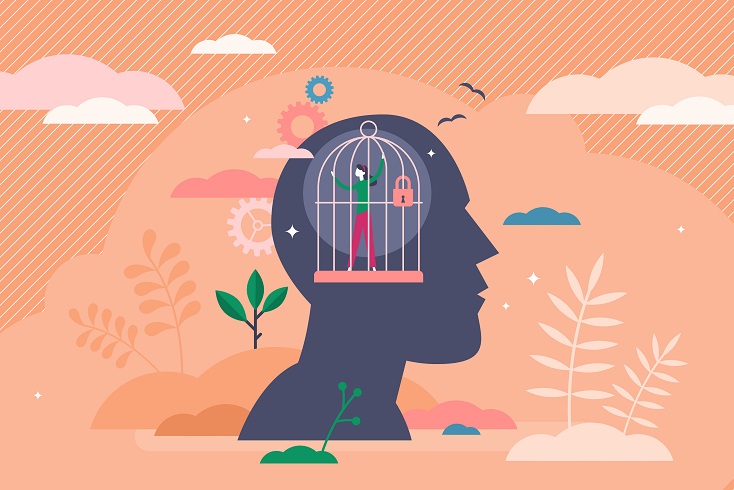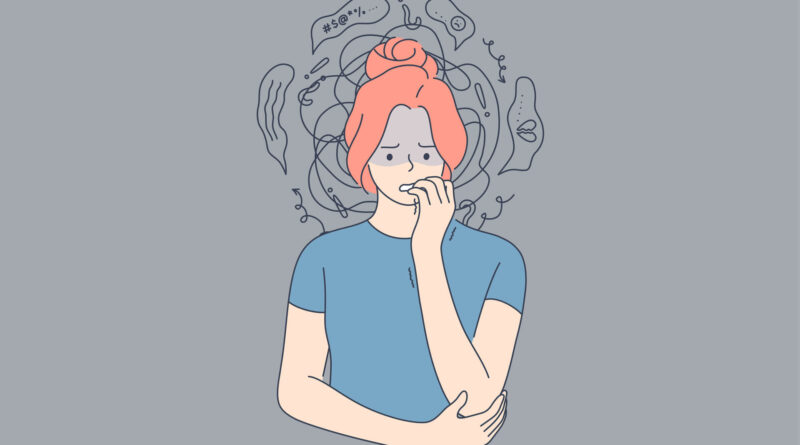ANXIETY THE PATH TO IRRELEVANCE
Anxiety can be defined and understood in various ways depending on the context and perspective. It is important to note that any definition of anxiety provide different lenses through which it can be understood, and a comprehensive understanding of anxiety often takes into account multiple perspectives to capture its complexity. If you are seeking help or information about anxiety, we can consider it from the following spheres of life.

For instance, psychological perspective is a response to both internal and external stimulus and emotional state characterized by feelings of unease, worry, and apprehension, that often involves a sense of fear or concern about future events, uncertain outcomes, or potential threats. Looking at it from a medical perspective standpoint, it can be describe or viewed as a mental health disorder that involves excessive and persistent worry, fear, or anxiety that significantly impairs a person’s daily functioning and well-being. It may be accompanied by physical symptoms such as increased heart rate, sweating, trembling, and restlessness.
Understanding The Importance of Anxiety
It is important to understand what it means from the stand point of evolutionary too and it can be view or refer to as a natural response to perceived threats or danger .For instance this adaptive response is the one that triggers body’s fight-or-flight mechanism as well prepared individuals to react quickly in potentially dangerous situations. As a behaviorist because every human being even animals we are all behaviorist and we can as a learned response to certain conditioning or unconditional past, present and future experiences where a person has associated certain cues or events with fear or negative outcomes.
In fact, in our primitive age sociocultural perspective of our accentors can preview it as an influenced by socio ideology made as aberration or taboo factors, called norms, expectations, and social pressures. Societal stressors and environmental factors.
Aside these even in the past and at current factors such as such , poverty, discrimination, or social isolation, can contribute to the development or exacerbation of it’s disorders and all those things lead to it because individual human has an internal witness which is called existential perspective to life and all the happenings in the world From this standpoint, applying this to anxiety may be seen as an inherent part of the human condition, stemming from the awareness of one’s own mortality, the uncertainty of existence, and the search for meaning to life and purpose of life.

The Real Causes of Anxiety in this 21st Century, Needed to be Discussed
It’s important to note that anxiety can vary in their presentation and severity from person to person. The descriptions provided above are general and may not capture the full range of experiences individuals with anxiety may have. But we really need to pin point the causes of anxiety among humanity in the 21st Century
- Overwhelming Worry
Anxiety can come up due to excessive and persistent worries that goes beyond what is considered normal. It is often characterized by an overwhelming sense of fear, apprehension, or unease about future events or situations.
- Restlessness and agitation
It can emerge from restlessness and a constant feeling of being on edge. People with anxiety may have difficulty sitting still, they will feel an inner tension, or as well experience a sense of restlessness that interferes with their daily activities.
- Physical symptoms
It can also manifest in various physical symptoms, such as rapid heartbeat, shortness of breath, sweating, trembling, muscle tension, headaches, stomachaches, and fatigue. These physical sensations often occur in response to the perceived threat or danger triggering the anxiety.
- Racing thoughts
Anxiety is often accompanied by a racing mind, characterized by a stream of rapid, intrusive thoughts. These thoughts may be negative, self-critical, or catastrophic in nature, creating a cycle of worry and further fueling the anxiety.
- Difficulty concentrating
It comes from challenges to concentrate or focus on tasks at hand. The constant worry and preoccupation can distract individuals, making it harder for them to pay attention or retain information.
- Avoidance behavior
Anxiety can manifest from individual unablement to avoid certain situations or activities that they perceive as potentially triggering or threatening. This avoidance can be an attempt to reduce anxiety in the short term but often leads to further increase in anxiety due to such an individual behavioral response to in daily life and reinforces the anxiety in the long term.
- Sleep disturbances (Sleeplessness)
It can disrupt sleep patterns, causing difficulties falling asleep, staying asleep, or experiencing restful sleep. Individuals with anxiety may have racing thoughts or worry at night, leading to insomnia or frequent waking during the night.
- Irritability and mood changes
It comes in as a result of a person’s mood changes which result to irritability, frustration, or feelings of being easily overwhelmed. Individuals may become more emotionally reactive or experience sudden mood swings in response to triggers or stressors.
- Social withdrawal
social withdrawal or isolation often contribute to anxiety, because when an individuals feel self-conscious, judged, or fearful of social interactions then such will avoid socializing or participating in activities they once enjoyed due to the anxiety and the fear of being negatively evaluated by others.

Effect of Anxiety on Humanities
Anxiety can significantly impact a person’s daily life, affecting their ability to work, study, maintain relationships, or engage in hobbies. It can lead to a reduced quality of life and hinder personal growth and achievement. Further more, it can affect negatively as well positively, and this we have to explain blow, It’s important to recognize that while it may have some positive aspects, persistent or excessive anxiety can be debilitating and require professional help for effective management. Here are some general positive and negative effects associated with it:
Positive Effects
We shall summarize all the positive effect of anxiety into three categories which are;
1: Heightened Awareness: It can make individuals more vigilant and alert to potential threats or dangers. This heightened state of awareness can help them anticipate and respond to challenges effectively.
2: Motivation and Productivity: Mild levels of anxiety can serve as a motivational factor, pushing individuals to work harder and achieve their goals. It can enhance focus and drive individuals to perform better in academic, professional, or personal endeavors.
3: Preparedness: It can prompt individuals to prepare for potential risks or outcomes. It may encourage them to gather information, plan ahead, and take necessary precautions, which can be beneficial in certain situations.
Negative Effects
We shall summarize all the negative effect of anxiety into four categories, which are;
1: Emotional Distress: It often leads to emotional distress and can manifest as excessive worry, fear, or restlessness. This emotional burden can significantly impact an individual’s overall well-being, leading to decreased quality of life.
2: Impaired Cognitive Functioning: Severe anxiety can interfere with cognitive abilities, such as memory, concentration, and decision-making. It may cause difficulties in processing information, problem-solving, and logical reasoning.
3: Physical Health Consequences: Chronic anxiety can take a toll on physical health. It can contribute to increased muscle tension, fatigue, headaches, gastrointestinal issues, sleep disturbances, and weakened immune function.
4:Social Impact: Anxiety can influence interpersonal relationships and social interactions negatively. Individuals with this may avoid social situations, experience difficulties in initiating or maintaining relationships, and struggle with low self-esteem or self-confidence.
Picture Credit:
APM | https://apm.net.au/job-seekers/resources/what-is-anxiety-a-comprehensive-overview
GHLF Creakyjoints | https://creakyjoints.org/living-with-arthritis/mental-health/anxiety-and-arthritis/
NAMI | https://www.nami.org/Blogs/NAMI-Blog/October-2020/It-s-Not-Just%E2%80%9D-Anxiety




